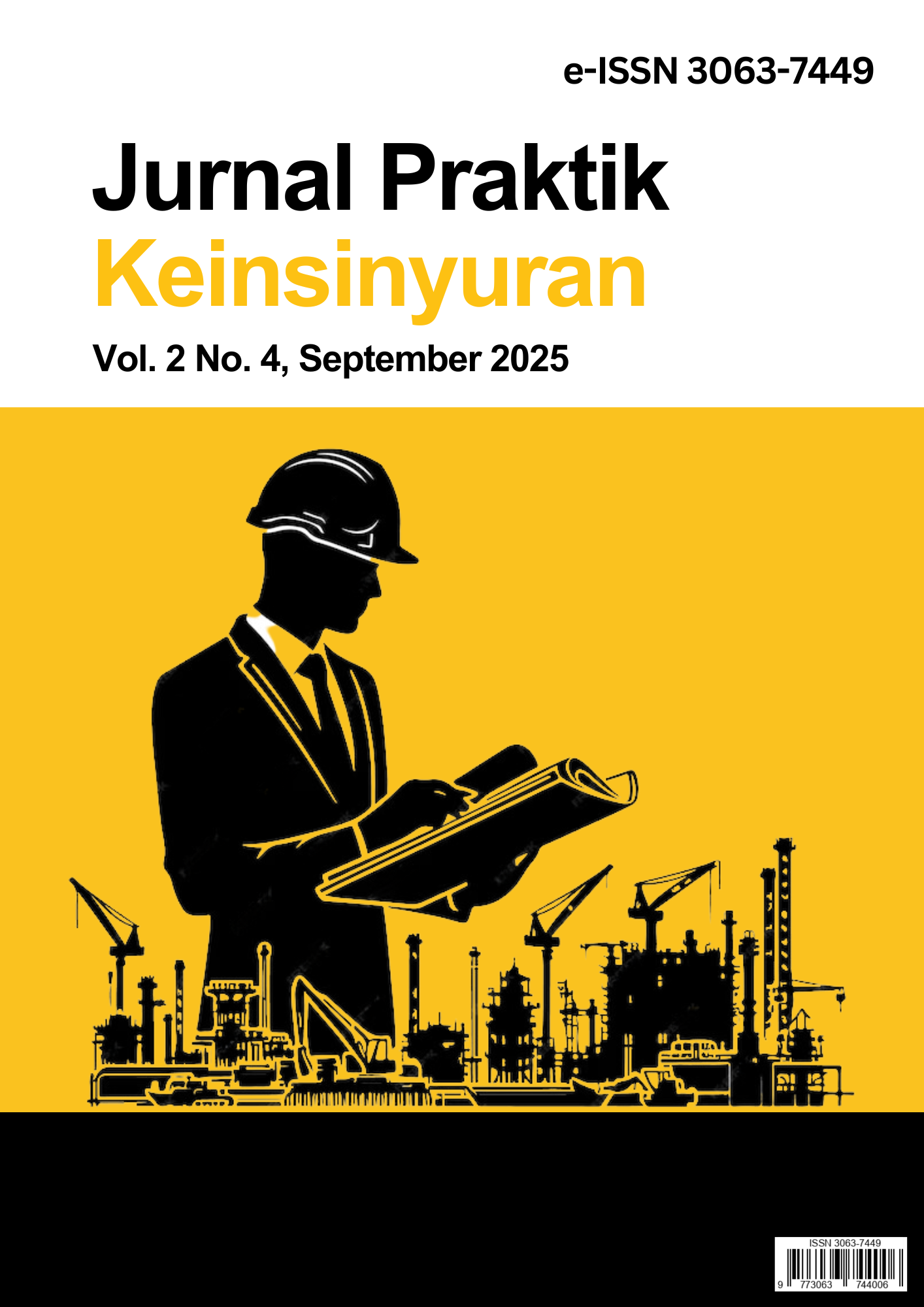Perspektif Grup Proses Manajemen Proyek pada Implementasi Smart Parking System di UKSW
DOI:
https://doi.org/10.25170/jpk.v2i04.6867Keywords:
Group Process, Project Management, Smart Parking SystemAbstract
In every job that meets the requirements as a project, it can be seen through the perspective of the project management process group, especially if the work has a predictive approach. The requirements for a project are to have a certain duration of work and unique results. The Smart Parking System implementation at the Satya Wacana Christian University (SWCU) meets the requirements as a project, and therefore can be discussed through the perspective of the project management process group. In the initiation process group the organization's objectives were obtained to carry out the efficiency of parking operators and updating technology without reducing parking safety. Furthermore, in the planning process group with the help of a Gantt Chart, Budget Table, and Rasci Matrix so that the time estimation value needed for 91 days and the budget estimate of Rp 72,500,000,-. In the execution process group, the work process is shown in accordance with the work breakdown structure (WBS) in planning. The monitoring and control process group ensures that the work is in accordance with the budget and duration needed. Finally, the closing process group was handed over to the Project Sponsor.
References
Al-Sawi, K. A., Hegazy, M. I., Abu Halawa, M. A., & Atwa, M. S. (2023, March 13). How to Achieve Excellence through Project Execution and Cost Optimization. Gas & Oil Technology Showcase and Conference. https://doi.org/10.2118/214279-MS.
Bachy, G., & Hameri, A.-P. (1997). What to be implemented at the early stage of a large-scale project. International Journal of Project Management, 15(4): 211–218. https://doi.org/10.1016/S0263-7863(96)00070-1.
Benser, C., & Hobbs, B. (2007). The Initiation Phase of Projects in Practice : a survey investigation. Journal of the Society of Project Management, 9(1): 32–39. https://doi.org/10.14914/spmj.9.1_32.
Fadhlurrahman, M., Widiasanti, I., Septiandini, E., Studi Teknologi Rekayasa Konstruksi Bangunan Gedung, P., & Negeri Jakarta, U. (2024). Analisis Manajemen Konstruksi pada Pembangunan Gudang PT. PJPT Senopati. Jurnal Pendidikan Tambusai, Vol. 8(1): 1405–1411. https://doi.org/https://doi.org/10.31004/jptam.v8i1.12571.
Perdana, S., & Rahman, A. (2019). PENERAPAN MANAJEMEN PROYEK DENGAN METODE CPM (Critical Path Method) PADA PROYEK PEMBANGUNAN SPBE. AMALIAH: JURNAL PENGABDIAN KEPADA MASYARAKAT, 3(1): 242–250. https://doi.org/10.32696/ajpkm.v3i1.235.
Prawidhana, D., & Dinariyana, A. (2025). Analisis Penyebab Keterlambatan Proyek Konstruksi Transmisi dan Gardu Induk: Studi Kasus Unit Induk Pembangunan Jawa Bagian Timur dan Bali (UIP JBTB). Rekayasa, 17(3): 536–551.
https://doi.org/10.21107/rekayasa.v17i3.28014.
Project Management Institute. (2017). Guide to the Project Management Body of Knowledge (PMBOK® Guide)–Sixth Edition. Project Management Institute. https://books.google.co.id/books?id=Rzc2DwAAQBAJ.
Project Management Institute. (2021). A Guide to the Project Management Body of Knowledge (PMBOK® Guide) – Seventh Edition and The Standard for Project Management (ENGLISH). Project Management Institute. https://books.google.co.id/books?id=lKsxEAAAQBAJ.
Rufaida, A., Larisa, I., Roro, M., Septiani, P. R., & Rahayu, T. (2024). Manajemen Proyek Sistem Parkir Cerdas Berbasis Radio Frequency Identification (RFID) Menggunakan Pendekatan Work Breakdown Structure (WBS) dan Diagram Jaringan (Network Diagram). Prosiding Seminar Nasional Mahasiswa Bidang Ilmu Komputer dan Aplikasinya.
https://conference.upnvj.ac.id/index.php/senamika/article/view/3061/2101.
Sabatino, D. (2024). Implementasi Sistem Keamanan Parkir dengan RFID dan Kamera untuk Perekaman Pelat Nomor dan Helm Pengguna. Electrician : Jurnal Rekayasa Dan Teknologi Elektro, 18(3), 293–298. https://doi.org/10.23960/elc.v18n3.2709.
Sanghera, P. (2019). Closing the Project. In P. Sanghera (Ed.), PMP® in Depth: Project Management Professional Certification Study Guide for the PMP® Exam (pp. 537–548). Apress. https://doi.org/10.1007/978-1-4842-3910-0_15




